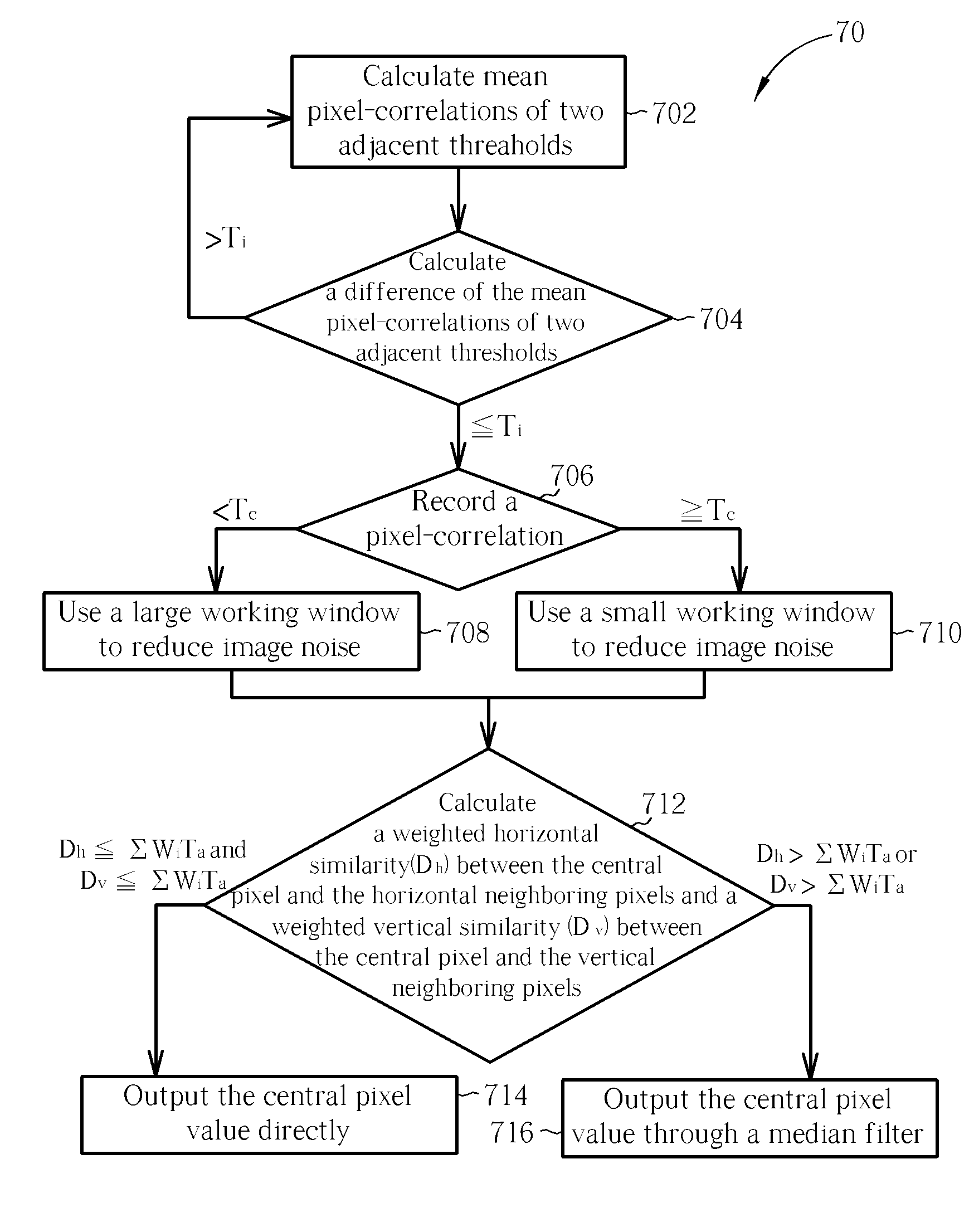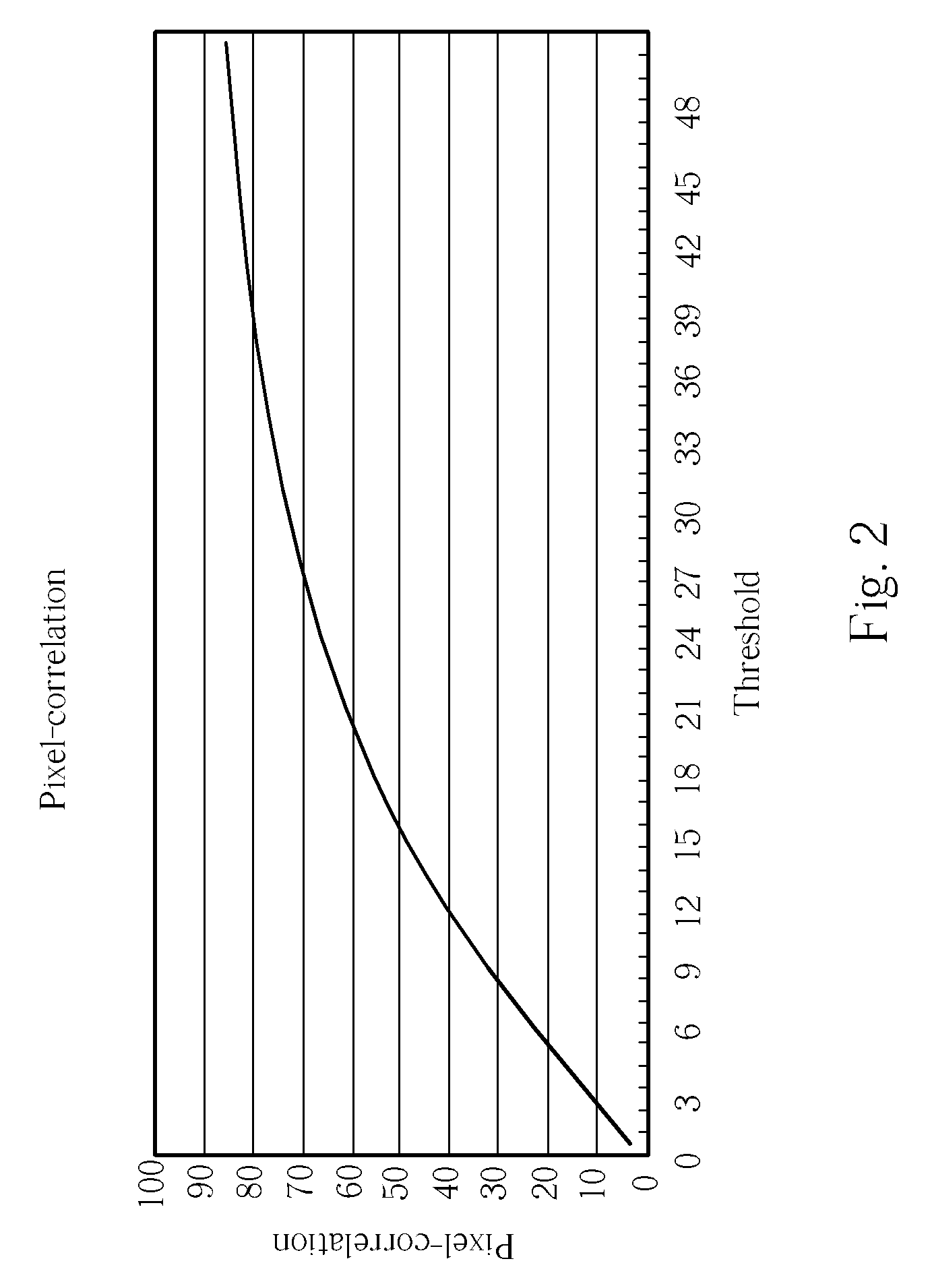Method for reducing image noise
- Summary
- Abstract
- Description
- Claims
- Application Information
AI Technical Summary
Benefits of technology
Problems solved by technology
Method used
Image
Examples
Embodiment Construction
[0050]The present invention relates to a method for reducing image noise. The present invention can be seen in several levels. The first level determines whether the image pixel-correlations experience interference from noise based on an n×n working window. An image pixel-correlation is defined as follows:
LCik={1,x0-xkT0,otherwise,1≤k≤n2-1and1≤i≤N
[0051]wherein x0 represents the central pixel in the working window, xk represents other pixels in the working window, N represents the number of all pixels, T is a predetermined value defined by a user, and the shape of the working window can be another geometric form.
[0052]If the resulting LCik is 1, it represents that there a pixel-correlation exists between the central pixel x0 and the neighboring pixel xk. Otherwise, it represents that there no pixel-correlation exists between the central pixel x0 and the neighboring pixel xk.
[0053]Next, a mean pixel-correlation is generated by summing the pixel-correlations in all working windows and ...
PUM
 Login to View More
Login to View More Abstract
Description
Claims
Application Information
 Login to View More
Login to View More - R&D
- Intellectual Property
- Life Sciences
- Materials
- Tech Scout
- Unparalleled Data Quality
- Higher Quality Content
- 60% Fewer Hallucinations
Browse by: Latest US Patents, China's latest patents, Technical Efficacy Thesaurus, Application Domain, Technology Topic, Popular Technical Reports.
© 2025 PatSnap. All rights reserved.Legal|Privacy policy|Modern Slavery Act Transparency Statement|Sitemap|About US| Contact US: help@patsnap.com



